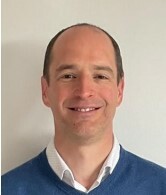Advertisement

CANCELLED: What is the place for rigless ESP technology in an electrified, low carbon oilfield of the future? with Graham Fyfe of Baker Hughes
Wednesday 6th March 2024 at 12.00pm
Location: Union Kirk, 333 Union Street, Aberdeen AB11 6BS (access from Langstane Place)
Biography:

Graeme Fyfe serves as Rigless ESP Performance Director for Europe, Caspian and Sub-Sahara Africa at Baker Hughes. He leads and manages the commercial operation in the region for the AccessESPTM Retrievable ESP System and also works with customers to help optimise performance and operations.
He was previously the Sales Lead for Europe for Baker Hughes Artificial Lift Systems and also worked prior to that in their drilling and completions business.
Graeme has also held a variety of senior management roles in industry outside the Oil & Gas sector. Graeme earned a Bachelor of Engineering degree in Civil Engineering from Heriot Watt University and
is member of the committee for the SPE European Artificial Lift Forum and SPE ICOTA Europe. He also participates in many forums and groups within Offshore Energies UK.
Abstract:
The status quo for artificial lift in many fields globally, either in development or producing, is to use gas lift or in some cases conventional ESP technology. However, as fields mature or for greenfield developments, is there a place for retrievable ESP technology in an optimized, low carbon oilfield of the future?
An example of retrievable ESP technology is the AccessESP Retrievable ESP system (ARES). It consists of a permanent completion, the docking station, and a retrievable system, which contains an ESP.
This allows the complete removal and replacement of an ESP; pump, motor, and seals, via slickline, wireline, coiled tubing or wireline tractor. Removing the need to carry out a heavy WO for the change out of the ESP component, means is no requirement to kill the productive well as the retrievable ESP equipment can be deployed live well using a standard slickline lubricator and well control equipment. The process of removal
and installation can be repeated as often as necessary for a variety of non ESP related reasons.
Baker Hughes would like to discuss the how ARES technology works, the production challenges that operators face in the North Sea, cases where some these challenges have been addressed globally with
ARES and how innovative ESP technology can help increase productivity, reduce intervention costs and lower GHG emissions.








